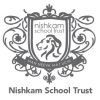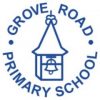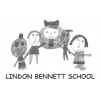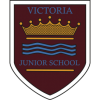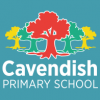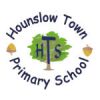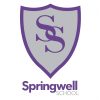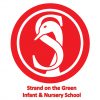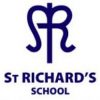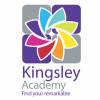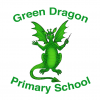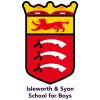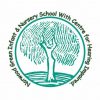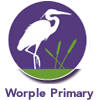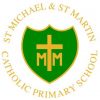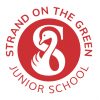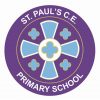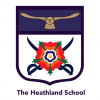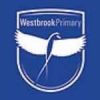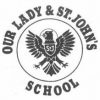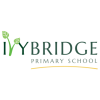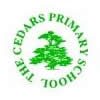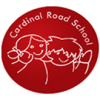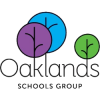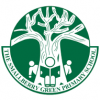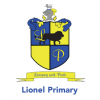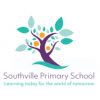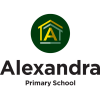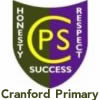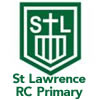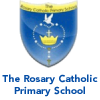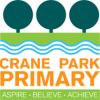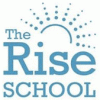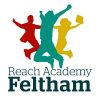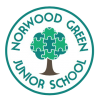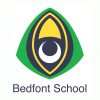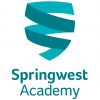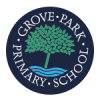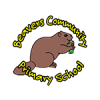Dear Subject Leader / Teacher / Teaching Assistant,
Welcome to the HEP Primary MfL home page. On this page, you will find a range of resources and information to support you if you are: the subject leader for MfL at your school and/or a classroom teacher/teaching assistant looking for advice and guidance to support your lesson planning.
One of the key aims of this resource is to ensure that pupils learn to be linguists as opposed to doing a language. During their time at primary school, they ought to be developing the skills and competencies to ‘speak, listen read and write in the target language’.
The national curriculum for languages aims to ensure that all pupils:
- understand and respond to spoken and written language from a variety of authentic sources
- speak with increasing confidence, fluency and spontaneity, finding ways of communicating what they want to say, including through discussion and asking questions, and continually improving the accuracy of their pronunciation and intonation
- can write at varying length, for different purposes and audiences, using the variety of grammatical structures that they have learnt
- discover and develop an appreciation of a range of writing in the language studied
Learning and using a foreign language allows pupils to explore the lifestyle and culture of other peoples through the medium of their languages. It can give the learner the experience of entering a foreign environment and existing within it. Coping for a while with a different linguistic medium is an enjoyable and intellectually challenging experience.
Learning a language promotes social interaction within and beyond the classroom. It helps pupils to appreciate the lives of others through appreciating their culture, understanding their concerns, respecting their opinions and accepting them as they are. Such attitudes help to promote goodwill and to counter insularity and prejudice.
Pupils improve their personal and social skills by learning to communicate, cooperating and contributing in class, considering the views of others and having to adjust to different social conventions.
To guarantee this happens, the skills of reading, writing, speaking and listening need to be carefully planned for.
Subject Self-evaluation template
MfL Subject Leader Workbook September 2024
Languages SL Resource File September 2024
June 2021: Ofsted Research Review Series: Languages
The Association for Language Learning (ALL)
https://www.all-languages.org.uk/
(Membership: School £50 / annum – Individual £70 / annum)
The Association for Language Learning (ALL) is the UK’s major subject association for those involved in the teaching of foreign languages at all levels.
ALL offers information, guidance, peer-to-peer support and CPD events to primary and secondary language teachers through its networks around the country. There is a local hub run at the Grange Primary School, Ealing. (Attendance is open to all ALL members.)
ALL offers the following resources / services:
- Carrying out a languages audit
Use the languages audit tool (available to download here in Word format: Primary Languages Audit Form and in pdf format: Primary Languages Audit Form) to find out which languages are spoken amongst your staff and how confident they are.Use the results to inform your action plan. Once you have decided on the language to teach in your school, look at the resources on this website to help you begin. There may be providers in your local area (for example ALL Primary Hubs, teaching school alliances, your local authority) who can help you with training and development to plan your first lessons in languages. - Transition
ALL has produced a useful free publication called the KS2 Co-ordinator's Handbook. This is an accessible read for head teachers and can be found here. For ideas, strategies and resources for the smooth transition between KS2 and KS3, read the free Transition Toolkit. For more fantastic resources including themed modules for self-directed learning for KS2 teachers of languages, please visit the ALL Connect blog. - Assessment
The Expert Subject Advisory Group (ESAG) for Modern Foreign Languages has created an advice document on Assessment in Modern Foreign Languages in primary schools. ALL’s Primary Steering Group has now put together a discussion guide ‘Assessment for ALL‘ to allow individuals or groups of teachers to explore the issues raised. Language Progression and Assessment at Key Stage 2. Created by the Ensemble project, shared by Therese Comfort and edited by the ALL Primary Steering Group. - Teacher Briefings - Have you read?
The Teacher Briefings collection explores current language learning and teaching topics. Available to members, each briefing provides evidence, good practice and resources to support teachers and schools improve their knowledge, policy and practice in the specific area. Recent briefings include:
* Language Trends 2019
* Ofsted Education Inspection Framework
* School Exchanges and Study Visits
For a taster, explore the Teacher Briefing on Transition. - Roadshows and webinars
'Roadshows' are part of our support for local ALL groups - they are presentations to update local groups on news from ALL, events and projects of interest, along with sector news and resources of interest. Local ALL groups can access the presentations to share with their local group attendees. For summer 2019, we have also piloted a Roadshow webinar. - Languages Today Primary Blogs
Primary language teacher and consultant Clare Seccombe writes our Primary Blog in the Languages Today magazine which is a member benefit of ALL. Explore Clare’s recent Primary Blog on writing at KS2.
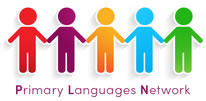 Primary Languages Network (PLN)
Primary Languages Network (PLN)
https://primarylanguages.network/home
(School Membership: Annual subscription £200 +VAT)
Transform the provision of primary languages in your school, cluster, MAT or TSA. PLN support the teaching of primary languages by providing:
- Staff training and CPD & help and advice
- Membership to an online Primary Languages SoW and VLE, which includes everything needed to coordinate and deliver languages across the whole school
- A language teacher service in UK schools
Take a look at our case studies to see how schools benefit from being members of our network.
 Primary Languages Development Award (PLDA)
Primary Languages Development Award (PLDA)
https://primarylanguages.network/pldapage
The Primary Languages Development Award enables primary schools to evaluate, strengthen and celebrate their MfL provision.
Primary Schools can take the award to ensure they are prepared for an Ofsted inspection and confirm languages are embedded in their primary curriculum.
Schools can achieve Establishing, Enhancing or Outstanding awards.
To achieve a Primary Languages Development Award, schools follow a simple process of self–assessment and evidence gathering supported by our primary languages mentor and submit this online to our Primary Languages Network VLE.
Assessment Criteria
- School Improvement Planning (SIP)
- Subject Coordination
- Staff training and CPD
- Teaching and learning of MfL
- Tracking and assessment
- Links abroad
- Transition to KS3
Application requirements
- Any school can apply for our Primary Languages Development Award
- Purchase online or complete our online Order Form
- Schools must complete a baseline primary languages questionnaire
- The Primary Languages Development Award can be renewed bi-annually and costs:
Assessment criteria: Establishing
Schools will need to provide evidence that they can meet the requirements of all criteria for each level of award. The award levels are cumulative (therefore to apply for the Enhancing award, the criteria for the Establishing award must also be met).
School improvement planning
There is an agreed school vision for the development of PFL in school. PFL first steps are in this academic year’s SIP. Audit of staff skills is being used to inform future steps toward effective language teaching and learning in KS2. SLT and Subject coordinator have held a staff CPD session to brief teachers on roll out of PFL in KS2 (possibly KS1). Parents and wider community informed of developments in delivery of PFL across KS2 (KS1)
Subject Coordination
Subject coordinator appointed and receiving training and support from outside agencies. The subject coordinator has a developing understanding of the requirements of the KS2 PFL POS. The subject coordinator is using the staff audit and school vision to inform school’s first steps in language learning. Subject coordinator is informing his/herself of the development of language learning skills when leaning a foreign language. Long term planning is being developed by the subject coordinator for PFL across KS2 (possibly KS1).
Training and CPD
All staff aware of the learning objectives in the DFE KS2 MFL POS and school long term vision for PFL in school. All staff offered language up-skilling CPD opportunities both in house via VLE and by external network CPD provider. Subject coordinator is supporting staff in their own developing understanding of how to teach a PFL.
Teaching and learning of MFL
Teaching and learning is planned for on a regular weekly basis to all KS2 and an effective SOW is accessible with sound file and language support where necessary. PFL teaching and learning intends to address the 12 DfE KS2 MFL PoS Languages Attainment Targets including phonics, grammar and the use of bilingual dictionaries. Opportunities to share good work is planned for – display, class and whole school assembly input. Teachers are experimenting with the use of authentic rhymes, songs and story books/online stories as part of the teaching and learning of the target language. Children have access to target language spoken by a native speaker.
Tracking and Assessment.
Tracking and assessment tools are being considered and trialled. Some informal tracking is taking place. Some AfL and self-assessment is taking place.
Links Abroad
School celebrates European Day of Languages. Children explore the target language country and celebrate/compare home cultures and the culture of the target language country/countries. The subject coordinator is beginning to investigate the local wider community and the potential of native target language speakers as guest speakers, etc in school.
Transition to KS3
School is investigating local high school’s language choice and provision. The subject coordinator is attempting to establish contact with local KS3/4 MfL teachers.
https://www.little-linguist.co.uk/french-english-dual-language-story-books.html
A huge selection of story books in over 40+ different languages
http://www.taughtbysong.com/
A new resource called Zim Zam Zoum which teaches French through song. A number of schools in Lancashire have tried out the materials with excellent results. The children (and staff) find the songs really catchy and easy to remember and the support materials are really useful.
http://www.neptunect.co.uk/searchf85b.html?searchtype=subject&inid=11
Develop skills in basic French/Spanish/German with this set of exciting tales. Four fully narrated stories covering topics such as members of the family; colours; foods; days of the week; and numbers are all supported by several lessons and entertaining games.
www.GrowStoryGrow.com
This is an online storytelling resource that inspires and motivates young language learners through a unique progressive approach and also includes an opportunity to assess children through online feedback and record-keeping. There are over 100 stories available and the site is free of charge.
www.britishcouncil.org
The British Council connect people with learning opportunities and creative ideas from the UK to build lasting relationships around the world.
BBC
Languages resources for home and school.
Babelzone
Babelzone is packed with hundreds of stories, animated songs, games and printable activities organised in clear and practical units.
Primary Resources
Free lesson plans, activity ideas and resources for primary teachers.
Channel 4 Modern Languages
Learn French and German with Chez Mimi and Hennings Haus. Supports teaching and learning with resources and practical advice.
Espresso Education
Espresso is an extensive library of high quality, video-rich broadband teaching resources and student activities that motivates pupils and supports teachers.
www.linguascope.com
This site is aimed at Primary School teachers who are interested in introducing a multilingual dimension into their lessons.
QUIA: Activities
Here you will find a sampling of activities in more than 100 categories.
Learn Spanish
This page is interesting if you want to learn Spanish
www.momes.net
French site for young learners.
Linguascope
Resources and Information. This site is aimed at Primary School teachers who are interested in introducing a multilingual dimension into their lessons.
Alphabet and Phonics
‘Phonetique’ website aimed at learners of French as a foreign language.
Genki English.net
A whole series of German songs and ideas to make learning German fun.
Audio Lingua
An interactive platform of language games and activities to motivate young children to learn foreign languages. The new site promotes: English, French, German, Spanish, Italian, Russian, Portuguese, Chinese and Arabic.
see also: https://www.little-linguist.co.uk
There is an increasing number of books being published which are intended for and suitable for use by primary teachers for storytelling activities or to start to build up a PML reading resource section in the school library. The following list in not exhaustive by any means but is a mixture of easy readers with limited vocabulary, dual French-English language books, some big books (with audio), some traditional stories and some talking big books (CDRoms).
Title |
Author |
| Numbers | |
| Un Lion Jaune | M. Van Fleet |
| Spot sait compter | Eric Hill |
| Un pour l'escargot, dix pour le crabe | AP Sayre-J. Sayer / R. Cecil |
| Quelle heure est-il Monsieur le Loup? | Annie Kubler |
| Colours | |
| Toutes les couleurs | A. Sander |
| Petit Poisson blanc | Guido van Genechten |
| Homme de couleur | J. Ruillier |
| Parts of Body | |
| Pourquoi? | A Sander |
| Va-t-en grand monster vert | Ed Emberley |
| Clothes | |
| Je m'habille et je te croque | Benedicte Guettier |
| Le striptease d'Uki | Claudia Bielinsky |
| Others | |
| Les saisons d'Uki | Claudia Bielinksy |
| Cache cache a l'ecole | Claudia Bielinksy |
| The Hungry Caterpiller - La chenille qui fait des trous | Eric Carle |
| L'enorme crocodile (emormous crocodile) with CD | Roald Dahl |
| Dual Langauge Books | |
| Red Riding Hood / Le petit chaperon rouge | |
| Goldilocks and Three Bears / Boucle d'or et les trois ours | |
| Giant Turnip / Le navet geant | |
| Rainbow Fish / Arc-en-ciel | |
| 3 Billy Goats Gruff / Les trois boucs bourru | |
| Jill and the Beanstalk / Jill et le haricot magique | |
| Dear Zoo / Cher Zoo | |
| More Dual Language Books | (can also be bought as CD Rom for use on IW with additional activities) |
| Goodnight everyone / Bonne nuit a tous | |
| Happy Birthday / bon anniversaire | |
| I want my banana / je veux ma banane | |
| I'm too big / je suis trop gros | |
| Space Postman / le facteur spatial | |
| What's for supper? / Qu'est-ce qu'on mange ce soir? | |
| Get dressed Robbie / habille-toi Robbie | |
| George the Goldfish / Georges le poisson | |
| Big Reading Books | |
| Monsieur l'arbe et la petite fille | |
| A la mer | |
| Anniversaire a la ferme | |
| Les amis de la ferme | |
| Plic plic tombe la pluie |
If you have used or know of any good resources to share with other subject leaders or teachers in Hounslow, please email them to Nikola Standing – n.standing@hounsloweducationpartnership.co.uk







